Justina Jang is a cultural visionary whose mission is rooted in connection between generations, communities, and cultures. As the founder of the Korean British Cultural Exchange (KBCE) and the Festival Director of both the ESEA Culture Festival and the Kimjang Festival, she has spent the past decade passionately promoting Korean heritage in the UK. Through large-scale events, educational initiatives, and grassroot outreach, her work has become a celebration of Korean culture, centered around one deeply meaningful symbol, kimchi.
To learn more about her journey, I conducted an email and WhatsApp interview with her on Sept 10-15.
Ten years ago, when Justina launched the first Korean Harvest Festival (now known as the ESEA Culture Festival), Korean food was just beginning to make a name for itself internationally. Kimchi, hailed as a “superfood,” was slowly gaining attention, but outside of Korean communities, authentic versions were hard to find. A quick search on Amazon revealed products labeled "kimchi" that bore little resemblance to the traditional dish. "I was shocked," Justina recalls. “As a Korean, I felt upset, it was misrepresenting our heritage.”
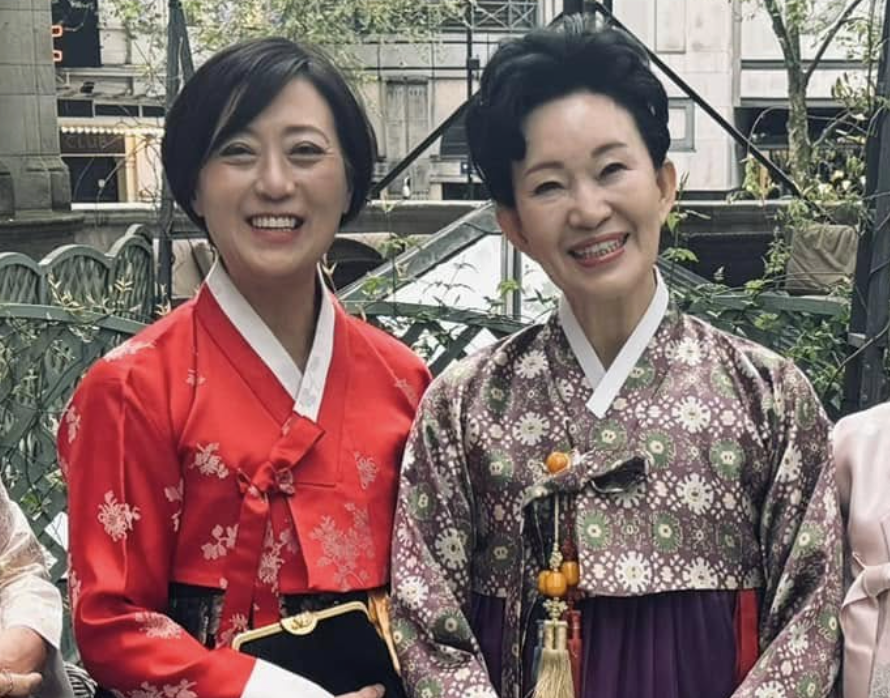
Determined to preserve and properly represent this integral part of Korean culture, she ensured that kimchi-making demonstrations became a staple of her festivals from the very beginning. "Without proper ingredients and correct fermentation, kimchi can’t live up to its reputation as a superfood," she said.
That dedication led to the birth of the Kimjang Project in 2018, backed by the National Heritage Lottery Fund. The project produced a kimchi recipe book, instructional videos, and launched the now-annual Kimjang Festival in New Malden, a neighbourhood that is home to Europe’s largest Korean community. In 2022, Justina took her commitment even further by studying under kimchi master Ha Yeon Lee, known for her appearances on several Netflix series. “I’m proud to be her student here in the UK,” she said.
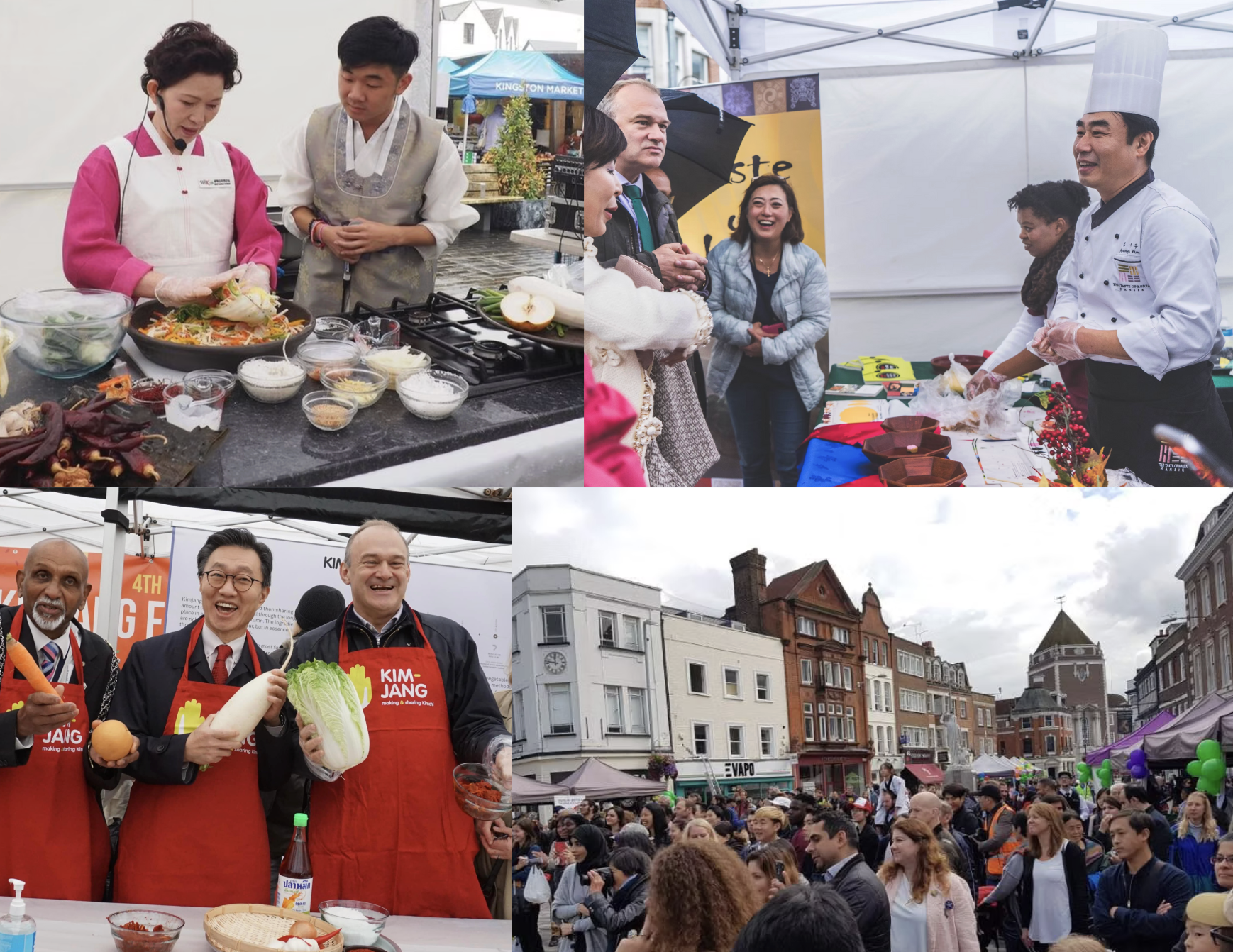
Her passion and advocacy reached a historic milestone in 2023, the 140th anniversary of UK–Korea diplomatic relations. Justina successfully lobbied Kingston Council to officially designate 22 November as Kimchi Day, making Kingston the first city in Europe to honour the dish in this way. The celebration took a royal turn when King Charles III visited New Malden. Justina organised cultural performances for the occasion and presented him with a jar of handmade kimchi and a recipe book as a birthday gift. “He accepted it warmly, joking, ‘I hope it won’t blow my head off!’” she recalls.
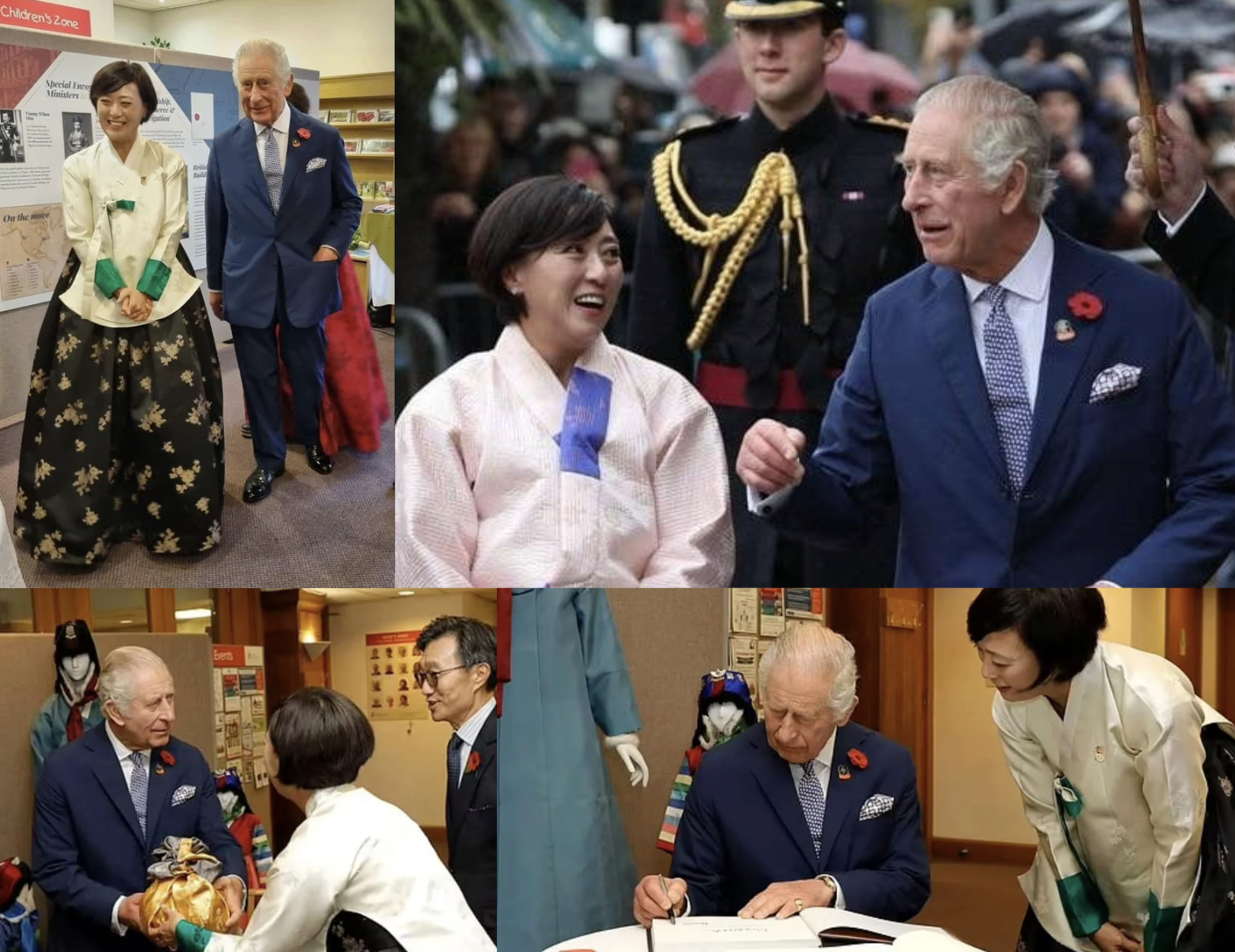
The moment sparked global recognition, the Korean Ministry of Agriculture honoured her with an award, and in November 2023, she was appointed a Global Kimchi Ambassador by aT (Korea Agro-Fisheries & Food Trade Corporation), followed by her 2024 appointment as a Kimchi Ambassador for WIKIM, Korea’s World Institute of Kimchi.
For Justina, though, kimchi is more than just a food. It is a link between generations, a symbol of resilience and memory. “Kimchi connects me to my grandmother, my mother, and now to my own family,” she said. “Recipes are passed down through generations, evolving over time. My mother combined her mother’s recipe with my father’s family recipe, and now, living in the UK, I’ve adapted it again, even for my English husband.”
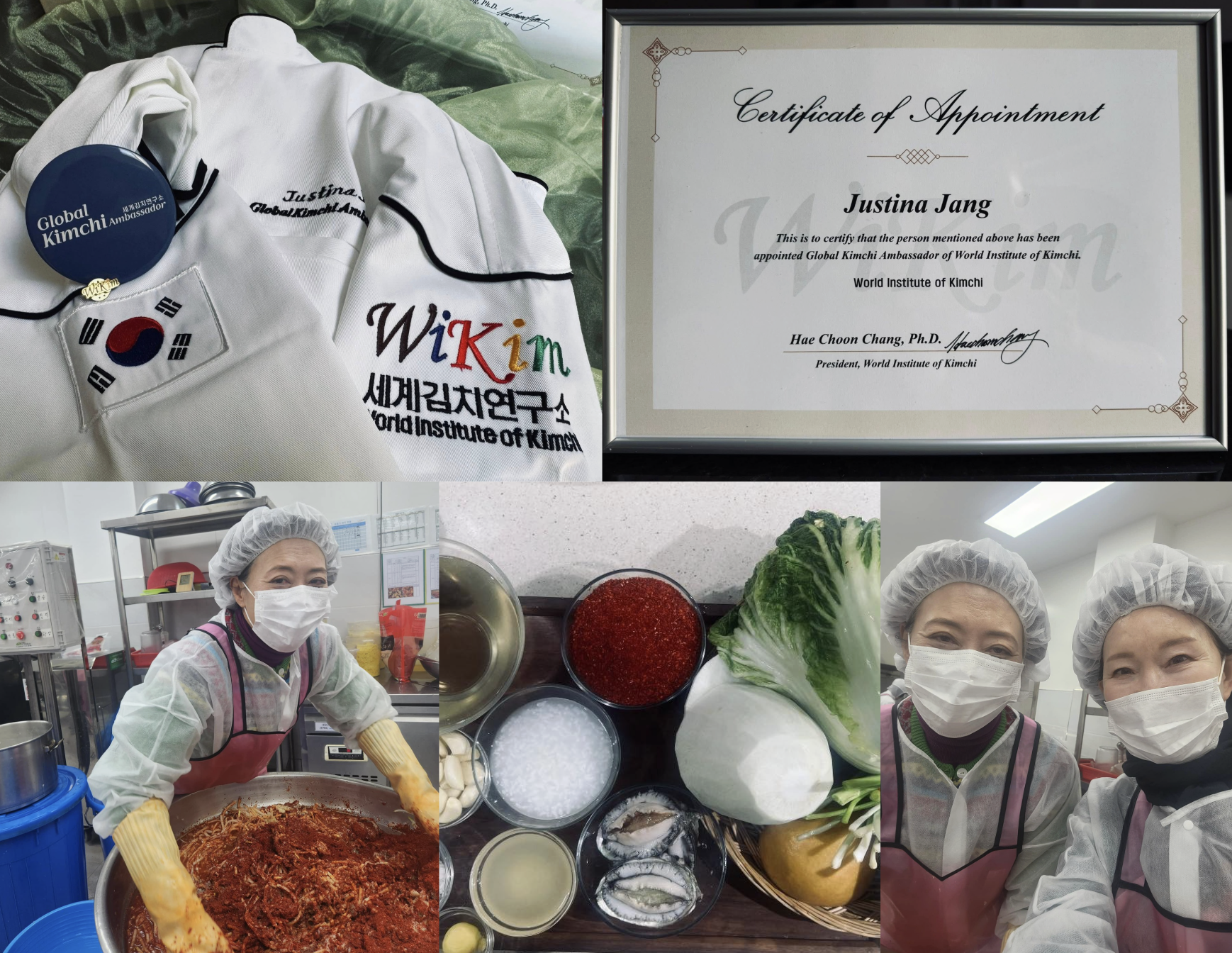
This adaptability is part of kimchi’s magic. Though often associated with napa cabbage and spicy red chilli, kimchi is endlessly versatile. It can be made with seasonal vegetables like radish, cucumber, spring onion, even watermelon. It may or may not contain chilli powder (as in Baek Kimchi, or white kimchi), and its flavours range from bold and pungent to light and refreshing. The diversity of ingredients, spices, fermented seafood, broth, makes kimchi unlike any other fermented food. “It’s alive,” Justina said. “Constantly changing, yet deeply rooted in tradition.”
With her growing profile, Justina has also taken on the role of educator. At KBCE, she and her team develop programs to teach about kimchi's health benefits and cultural significance. “Korean cuisine is based on the philosophy that food is medicine,” she explains, referencing ancient principles from the Joseon Dynasty. Classes range from beginner to advanced, with expert Korean chefs joining to teach about fermentation, gut health, and the deep cultural wisdom behind Korean food.
Reaching non-Korean audiences remains a challenge, but Justina is undeterred. Social media plays a role, but she believes nothing replaces the hands-on experience of kimchi-making, smelling, tasting, touching. That’s why festivals and in-person classes are so important. “We create direct connections,” she said. “There’s still much more to do, but every step counts.”
One of the most powerful aspects of Justina’s work is her ability to connect across cultures. She combines festivals, workshops, and online platforms, all underpinned by the rising global interest in Korean culture, the "K Wave." But ultimately, she said, “kimchi’s taste speaks for itself. Once people try it, it often wins them over.”
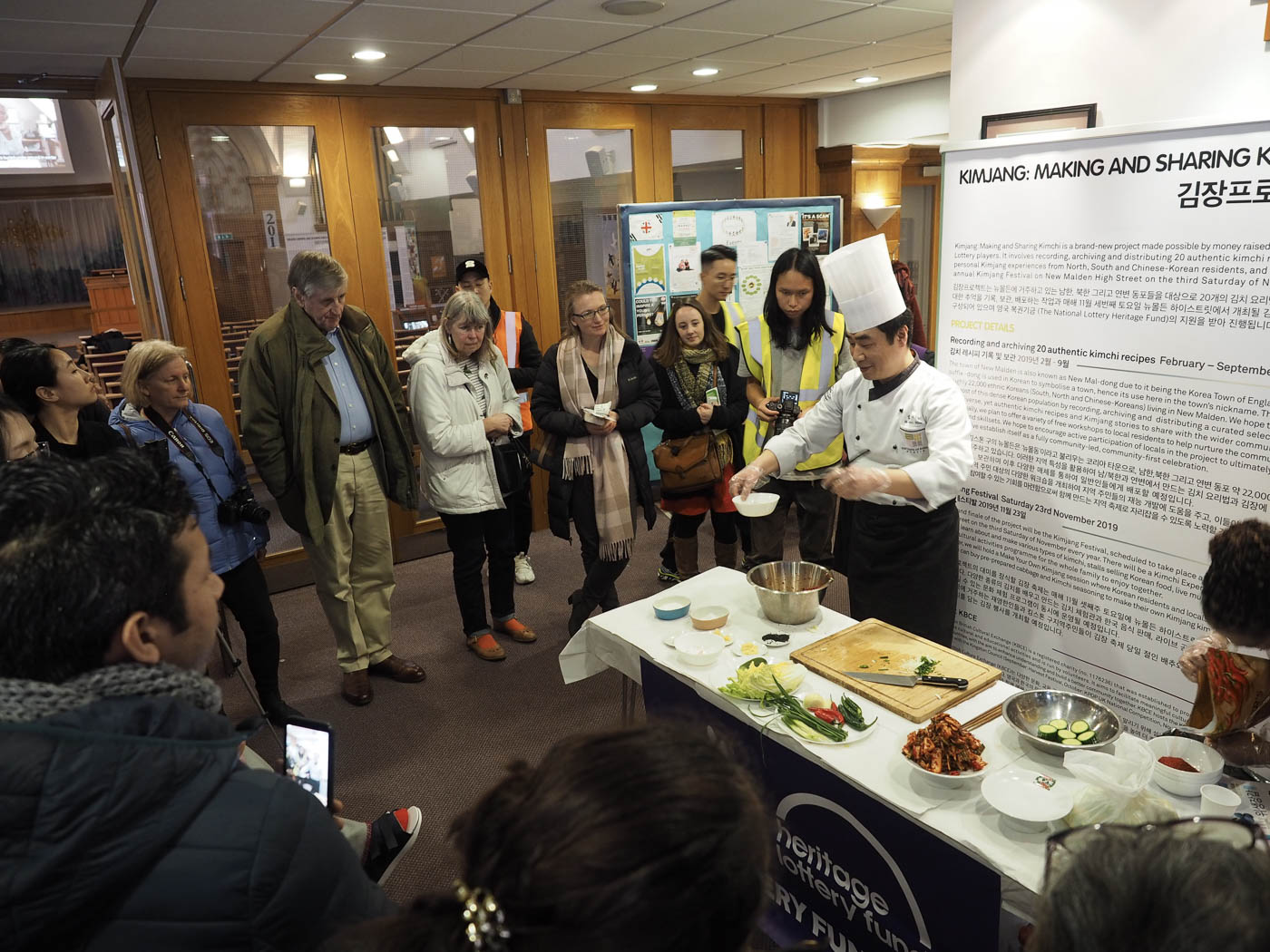
As the interview ends Justina shares her thoughts “The world feels divided right now, but I believe diversity is one of humanity’s greatest strengths.” She recalls when she organised the ESEA Culture Festival, it happened to coincide with an anti-immigration demonstration in London. “That contrast felt symbolic, we chose to celebrate diversity peacefully, and everyone came together with joy. For me, kimchi is a beautiful metaphor for diversity and harmony. Many different ingredients, each unique, coming together through the fermentation process to create something greater than the sum of its parts. Fermentation takes time and patience, but the result is a wonderful kimchi, delicious, nourishing, and full of health benefits.” she said.
For that, her message to everyone is “Learn from kimchi, embrace diversity, practice patience, and find harmony in differences. Eat well, stay healthy, and enjoy life!”
Through her tireless efforts, Justina Jang has turned kimchi into more than just a culinary symbol, it has become a medium for education, connection, and cultural pride. As she continues to champion Korean traditions on the world, her story reminds us that something as simple as fermented cabbage can hold the power to bring people together, one bite at a time.
How about this article?
- Like3
- Support0
- Amazing0
- Sad0
- Curious0
- Insightful1


